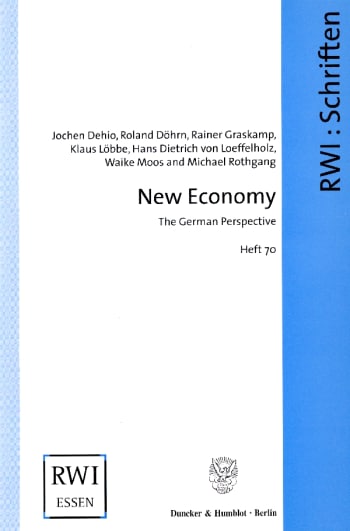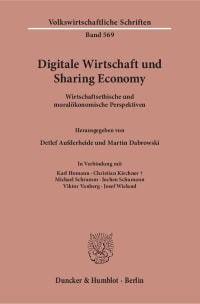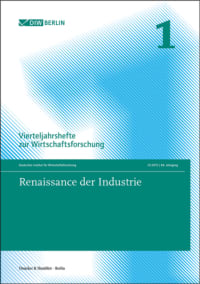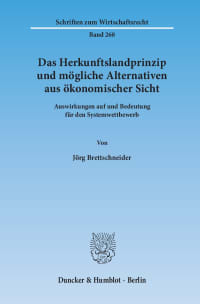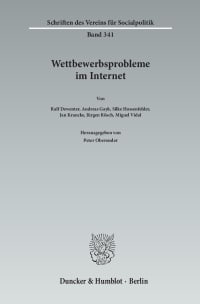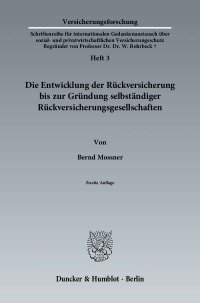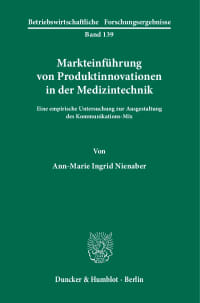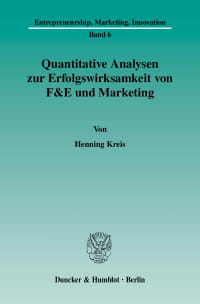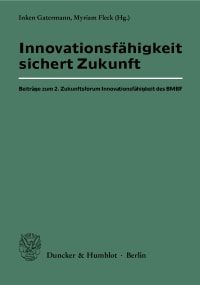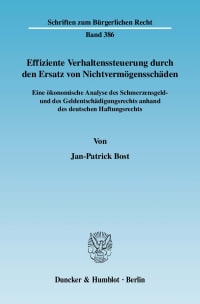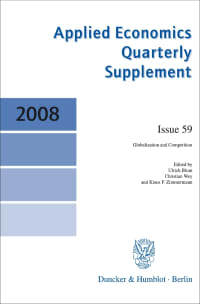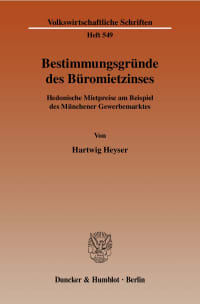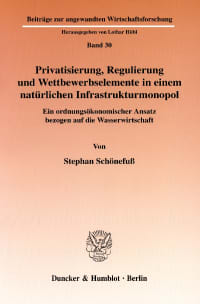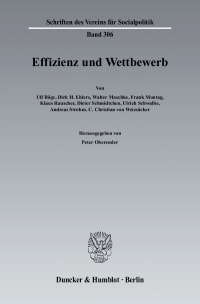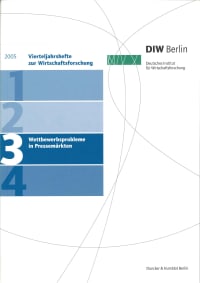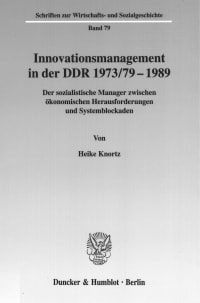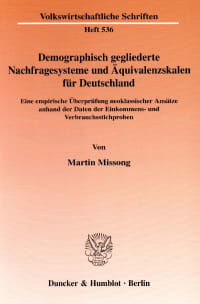The German Perspective
Beschreibung
For many observers the beginning of a dynamic economic and stock market upswing in the U.S. in the mid 1990s marked the start of a new era, the times of the new economy. This phenomenon has been under intense discussion ever since - both in the political arena as well as among scientists. Thereby the somewhat glamorous term new economy reflects the conviction held by its proponents that the use of new technologies will lead to a never ending acceleration of technological progress and economic welfare.
The origins of this development date back a long time: More than 30 years ago, the starting point was the basic innovation »digitilization«. Production as well as application of information and communications technologies (ICT) are based on this principle. At the beginning of the seventies, the first microprocessor was produced. Some ten years later, the first personal computer was brought onto the market. The commercial use of the Internet has begun in the mid nineties. In view of the economic boom in the U.S. accompanying the introduction of the Internet, the question arises as to what extent the new economy actually has exerted lasting positive effects on productivity - not only in the United States, but also worldwide.
Inspired by these developments, the Federal Ministry of Economics and Technology commissioned RWI, Essen, to study the driving forces of the new economy. In this report, the trends of the ICT sector and of the use of ICT products are analyzed with respect to the overall economic effects in Germany in comparison to the U.S. Further analyses were carried out regarding the intensity and effects of e-business. Finally, the influence of different methods of price measurement on productivity was analysed, since this is important for international comparisons of total factor productivity. The study culminates in a growth accounting calculation separating the contributions to economic growth by capital, labor, and technological progress.
Inhaltsübersicht
Inhaltsübersicht: 1. Economic Development in Germany and the U.S.: Long-Term Trends - Labor and Capital Productivity - External Trade and Foreign Direct Investment - Public Finance - 2. ICT and Earlier Technological Revolutions: Fundamental Technological Revolutions in Historical Perspective - Analysis of Historical Time Series - Historical Trend Growth of the Production Potential - Concluding Remarks - 3. Volume and Growth of the ICT Sector: Definitions and Data Base - International Comparison - ICT Sector by Industry - Concluding Remarks - 4. ICT Use: Economic Effects of ICT Use - ICT Use in Germany - Concluding Remarks - 5. Macroeconomic Consequences of ICT: Methodological Approach - Data Availability - Growth Accounting Analysis - Influence of Deflating Methods on Measured Growth - Trends of Total Factor Productivity and Capital Deepening - Concluding Remarks - 6. Summary and Conclusions: Issues and Objectives of the Study - Economic Development in Germany and the U.S. - ICT and Earlier Technical Revolutions - ICT Sector - Sectoral Use of ICT - Macroeconomic Consequences of ICT - Fields of Activity and Economic-Political Implications - Bibliography
Bücher aus denselben Fachgebieten
Kontakt
-
+49 30 / 79 00 06 - 0
-
Bestellinformation
-
Versandkostenfrei innerhalb Deutschlands.
-
Für Kunden aus EU-Ländern verstehen sich unsere Preise inklusive der gesetzlichen Mehrwertsteuer und – außer bei digitalen Publikationen – zuzüglich Versandkosten. Für Kunden aus Nicht-EU-Ländern verstehen sich unsere Preise als mehrwertsteuerfrei und – außer bei digitalen Publikationen – zuzüglich Versandkosten.
-
-
Newsletter
